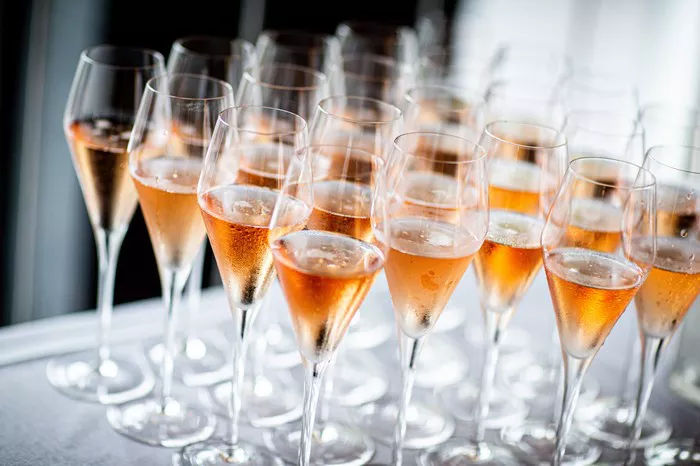The world of mixology is a vibrant tapestry of flavors, creativity, and craftsmanship, where skilled bartenders weave magic into every concoction. Behind the bar, a myriad of spirits stands ready to be transformed into delightful libations. Among this diverse array, one question often lingers in the minds of both enthusiasts and novices alike: What is the most used alcohol in cocktails? In this exploration, we embark on a journey through the realms of spirits, uncovering the quintessential elixirs that dominate the cocktail scene.
Vodka: The Versatile Titan of Mixology
When pondering the question of the most used alcohol in cocktails, one cannot overlook the undeniable reign of vodka. This clear, neutral spirit has become the backbone of countless mixed drinks, owing to its unparalleled versatility. Vodka’s inherent ability to seamlessly blend with a wide array of mixers allows it to take on the role of a chameleon in the mixologist’s arsenal. Whether in classic concoctions like the Martini or trendy innovations like the Moscow Mule, vodka consistently proves its mettle as the go-to choice for crafting a diverse range of cocktails.
Gin: A Botanical Symphony in Every Sip
Stepping into the aromatic world of gin, we find another heavyweight contender for the title of the most used alcohol in cocktails. Defined by its distinctive botanical infusion, gin brings a symphony of flavors to mixed drinks. From the iconic Gin and Tonic to the classic Negroni, gin enthusiasts celebrate the spirit’s ability to add depth and complexity to any cocktail. Its herbal and floral notes make it a favored choice among those seeking a more nuanced and sophisticated drinking experience.
Rum: A Tropical Escape in Every Glass
As we navigate the seas of mixology, the allure of rum beckons with promises of tropical escapades and exotic flavors. In the hierarchy of the most used alcohols in cocktails, rum secures its place with a rich history and an extensive range of expressions. From the timeless Mojito to the tiki-inspired Mai Tai, rum lends itself to a myriad of concoctions, each embodying the spirit of the islands. Its diverse profiles, ranging from light and crisp to dark and robust, ensure that there’s a rum variant suitable for any cocktail creation.
Tequila: From Margaritas to Craft Cocktails
The agave-derived elixir, tequila, has carved its niche in the world of cocktails, elevating the art of mixology with its bold and distinctive character. In the quest to determine the most used alcohol in cocktails, tequila’s prevalence in popular drinks like the Margarita and the Tequila Sunrise cannot be ignored. As the craft cocktail movement continues to flourish, bartenders are increasingly turning to high-quality tequilas to craft innovative and unique libations that showcase the spirit’s depth and complexity.
Whiskey: A Timeless Elegance in Every Drop
The amber hues of whiskey cast a timeless elegance over the landscape of cocktails, making it an indispensable player in the realm of mixed drinks. Whether it’s the smoky allure of a classic Old Fashioned or the sophisticated charm of a Whiskey Sour, this distilled grain spirit brings a depth of flavor that resonates with connoisseurs and casual drinkers alike. In the exploration of the most used alcohol in cocktails, whiskey stands as a testament to the enduring appeal of tradition and craftsmanship.
See Also: hard cocktails
Brandy: A Refined Touch to Classic Cocktails
Amidst the plethora of spirits, brandy emerges as a refined and elegant choice for discerning cocktail enthusiasts. With its origins rooted in the distillation of wine, brandy imparts a warmth and complexity to drinks that is unparalleled. Often featured in classic cocktails like the Sidecar and Brandy Alexander, this spirit adds a touch of sophistication to the mix. While not as ubiquitous as some counterparts, brandy’s unique character ensures its place as a coveted ingredient in the world of cocktails.
Liqueurs: The Flavorful Accent to Mixology Masterpieces
In the intricate dance of mixology, liqueurs play a crucial role as flavorful accents that elevate cocktails to new heights. These sweet, often brightly colored spirits come in a myriad of flavors, from citrus-infused triple sec to the herbal notes of Chartreuse. While not standalone alcohols, liqueurs are indispensable in creating signature cocktails. Their role in classics like the Cosmopolitan (featuring cranberry liqueur) and the Espresso Martini (with coffee liqueur) demonstrates their ability to infuse a burst of character into any concoction.
Craft Spirits: Redefining the Landscape of Mixology
In recent years, the craft spirits movement has reshaped the landscape of mixology, introducing a myriad of small-batch and artisanal options to the discerning drinker. These unique and often locally-produced spirits, ranging from craft gin to boutique whiskey, have found favor among bartenders seeking to add an exclusive touch to their creations. While they may not yet be the most used alcohols in cocktails on a global scale, their influence is undeniable, contributing to the evolving tapestry of flavors in the world of mixology.
Conclusion: A Symphony of Spirits in the Cocktail Universe
As we unravel the intricate layers of mixology, the question of what is the most used alcohol in cocktails leads us through a symphony of spirits, each contributing its unique notes to the composition. Vodka’s versatility, gin’s botanical allure, rum’s tropical escapades, tequila’s bold character, whiskey’s timeless elegance, brandy’s refinement, liqueurs’ flavorful accents, and craft spirits’ innovation—all play a crucial role in shaping the diverse and ever-evolving world of cocktails. The true magic of mixology lies in the hands of skilled bartenders who, armed with a vast palette of spirits, continue to craft libations that captivate the senses and redefine the boundaries of flavor. Cheers to the art of cocktail creation, where the most used alcohol is not merely a liquid but a key player in a symphony of taste and ingenuity.


